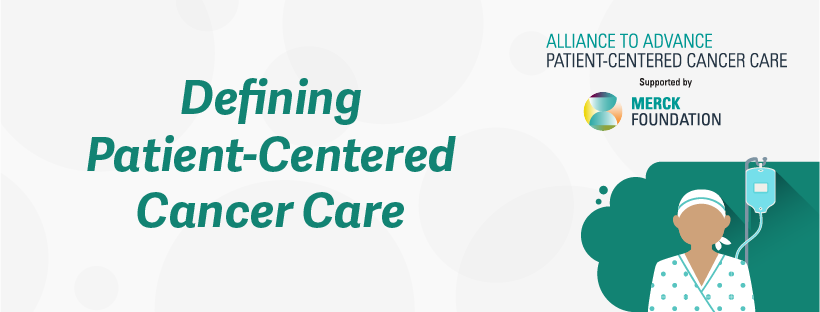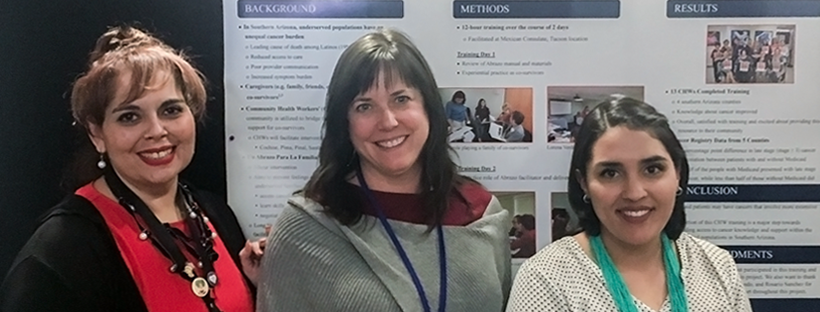In January 2019, the Policy Task Group for the National Navigation Roundtable released an issue brief entitled, “Patient Navigation in Cancer Care: Review of Payment Models for a Sustainable Future.” This resource outlines the various ways in which patient navigation services are currently funded. Case examples of short-term, long-term, and alternative funding models are given as well as their respective benefits and challenges. Finally, this document provides several recommendations for policy makers, payers, and stakeholders to improve payment models and to promote the sustainability and expansion of patient navigation in cancer care.
World Cancer Day 2019: I Am and I Will
Today is World Cancer Day, and the American Cancer Society has dedicated coverage of events around the globe and updates on the state of cancer research.
Find more information on the global cancer burden and the fight against cancer here.
Alliance to Advance Patient-Centered Cancer Care Webinar
Life After Grant Funding: Making the Business Case for Your Intervention
Many grant proposals require a plan for sustainability, carrying the expectation that a funded program will continue to be viable once the start-up resources have run out. This can be a challenging proposition for medical researchers, who have to run their interventions while identifying all direct and indirect financial benefits of their work. Drawing from his international research experience, Dr. J. Brian Cassel will discuss his approach to developing long-term funding models in palliative care, presenting universal considerations that could assist researchers in maintaining clinical and quality-improvement programs that expand access to care.
Caring for Cancer Patients with Serious Mental Illness: A Patient-Centered Roadmap
The Substance Abuse and Mental Health Services Administration has recently released data showing that mental illness is a growing, largely unaddressed public health concern. Their findings show that over 44 million adults have mental illness, and of those, 16 million people (including 3.1 million youths aged 12-17) have experienced a major depressive episode.
In this context, oncology and primary care practitioners are striving to attend to their patients’ mental and physical health, monitoring them for signs of mental distress. Although it is common for 20-30% of patients to experience clinically relevant levels of depression or anxiety when receiving a diagnosis of cancer, according to Dr. Kelly Edwards Irwin of the Massachusetts General Hospital Cancer Center, physicians and patients should not ignore prolonged symptoms of depression. “Depression can be treated effectively with psychotherapy and medication,” she explains. She adds that it is important to address these symptoms because they impact the patient’s quality of life and ability to engage in needed cancer treatment. Continue reading
Alliance to Advance Patient-Centered Cancer Care Webinar
A Report from the National Navigation Roundtable: The State of Patient Navigation Today
According to the American Medical Association, a patient navigator is someone who provides personal guidance to patients as they move through the health care system. Patient navigators may have professional medical, legal, financial, or administrative experience, or they may have personally faced health care-related challenges and want to help others who find themselves in similar situations1.
Defining Patient-Centered Cancer Care
An Alliance Infographic
The Alliance to Advance Patient-Centered Cancer Care aims to increase patient-centered care for cancer patients through improving coordination of care, patient-provider communication, patient engagement, psychosocial care, and other supportive care. The infographic below provides important background information on patient-centered care.
De-Activating Implicit Bias: the University of Arizona Expands Implicit Bias Training
Dr. Jeff Stone has recently expanded his implicit bias training program and is looking to take his expertise beyond the University of Arizona. The Alliance National Program Office reached out to Dr. Stone to learn more about implicit bias and discuss the impact of his intervention.
In Southern Arizona, the largest population of underserved minority patients is of Hispanic descent. Research shows that, even with all other factors being equal, minority patients are less likely to receive adequate health care. A growing body of research suggests that implicit bias may be one of the factors associated with this finding. Jeff Stone, PhD, from the University of Arizona Cancer Center (UACC), has been working with the University of Arizona College of Medicine (CoM) to train first year medical students to recognize their own bias before they start interacting with patients. According to Dr. Stone, “by understanding the psychology underlying their bias, they [medical students] can learn to control it, no matter who they are interacting with.” The training teaches medical students a variety of techniques that have been shown to reduce bias, helping promote equitable care for all patients. Continue reading
Addressing Language and Education Barriers in Southern Arizona
Two University of Arizona researchers presented posters at a local research fair highlighting interventions underway at UACC aimed at improving patient-centered cancer care for underserved populations.
[featured image – Left to Right: Lorena Verdugo, Dr. Julie Armin, and Juanita Trejo]
On May 2nd, The University of Arizona’s Juanita Trejo, MPH and Yvonne Bueno, MPH, OTR/L, presented posters at the 3rd Annual El Rio Research Fair “Innovations in Community Health”. Juanita Trejo, a recent graduate from the University of Arizona Master of Public Health program, presented a poster on the process of training Community Health Workers (CHWs) for The University of Arizona Cancer Center’s (UACC) expansion of Dr. Catherine A. Marshall’s Un Abrazo Para La Familia™ (Abrazo) program, Embracing the Family. She was awarded 2nd place in the innovation category. Yvonne Bueno, a 4th year Doctor of Public Health (DrPH) student at the University of Arizona’s College of Public Health, presented the results of qualitative survivorship care interviews, an important research tool in the expansion of UACC’s patient navigation program. She was recognized in the relevance category, earning 3rd place.
Grady Cancer Center Recognized for High-Quality Cancer Care by ASCO
One of the six Alliance sites, Georgia Cancer Center for Excellence at Grady Health System, has been awarded QOPI® certification by the American Society of Clinical Oncology, Inc.
The Georgia Cancer Center for Excellence at Grady Health System has been recognized by the QOPI® Certification Program LLC, a wholly owned subsidiary of the American Society of Clinical Oncology, Inc. (ASCO®), as successfully completing a three-year certification program for outpatient hematology-oncology practices that meet nationally recognized standards for quality cancer care. The QOPI® Certification Program builds on ASCO’s Quality Oncology Practice Initiative (QOPI®).
Alliance to Advance Patient-Centered Cancer Care Webinar
Bridging Primary Care and Oncology in the Era of Patient-Centered Cancer Care: Challenges, Opportunities and Lessons Learned
The role of primary care in cancer control is expanding, due in part to an increased emphasis on cancer care delivery that is respectful of and responsive to individual patient preferences, needs, and values (Committee on Quality of Health Care in America. Institute of Medicine, 2001). Current research data shows that Primary Care Physicians (PCPs) have a positive impact on early cancer diagnosis, treatment outcomes, and survivorship support, improving the quality of life of cancer patients across the continuum of care (Coburn & Collingridge, 2015).









